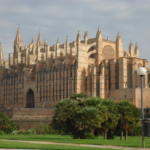In a significant development, Pakistan Tehreek-e-Insaf (PTI) founder and former Prime Minister Imran Khan has issued fresh directives to accelerate efforts in forming a united opposition front to launch nationwide protests after Eid, according to his lawyer, Faisal Chaudhry. Speaking on Geo News’ popular program Naya Pakistan, Chaudhry disclosed that Khan, currently incarcerated, has emphasized the urgency of establishing a broad-based opposition alliance to challenge the incumbent government.
Grand Opposition Alliance in the Making
Chaudhry revealed that Khan has tasked senior PTI leader Asad Qaiser with reaching out to key opposition parties, including Jamiat Ulema-e-Islam-Fazl (JUI-F), Mahmood Khan Achakzai’s Pakhtunkhwa Milli Awami Party (PkMAP), Shahid Khaqan Abbasi’s Awaam Pakistan, Grand Democratic Alliance (GDA), Jamaat-e-Islami (JI), and prominent activist Mahrang Baloch, among others. The objective is to forge a consensus on a unified strategy aimed at restoring constitutional supremacy, democracy, and ending human rights violations in the country.
“Imran Khan believes that the independence of the judiciary and media is crucial to achieving these goals,” Chaudhry stated, underscoring the alliance’s broader vision. He added that the PTI is committed to building a coalition that transcends political differences to address the nation’s pressing challenges.
Strategic Meetings and Consultations
Chaudhry shared that recent consultative sessions have been held to solidify the opposition alliance. One such meeting took place at Asad Qaiser’s residence last week, while another was hosted by Mahmood Khan Achakzai. These discussions have laid the groundwork for a coordinated movement against the government, with Qaiser leading PTI’s efforts and JUI-F’s Kamran Murtaza heading his party’s committee. A sub-committee under former PM Shahid Khaqan Abbasi is also actively involved in the process.
The lawyer emphasized that the PTI is in constant communication with opposition leaders and personalities to ensure a cohesive approach before launching the anti-government movement. “The goal is to create a united front that can effectively challenge the current administration’s policies and actions,” he said.
PTI’s History of Protests and Challenges
Since Imran Khan’s removal from power, the PTI has organized several anti-government protests, many of which have been met with violent clashes between demonstrators and law enforcement agencies. The most notable instance occurred in May 2023, following Khan’s arrest, when protests turned violent, resulting in attacks on government and military installations. The aftermath saw widespread arrests and military trials of those involved.
More recently, on November 26, 2024, Islamabad witnessed intense confrontations between protesters and law enforcement during a PTI-led rally. These incidents have highlighted the party’s determination to challenge the government, even in the face of significant resistance.
Internal Rifts and Disciplinary Actions
Amidst these developments, internal discord within the PTI has come to the fore. The expulsion of firebrand lawyer-turned-politician Sher Afzal Marwat over alleged disciplinary violations has sparked debates about the party’s internal dynamics. Marwat, in a recent appearance on Geo News’ Aaj Shahzeb Khanzada Kay Sath, criticized the party’s leadership, claiming that “unelected members are managing all party affairs” and keeping Imran Khan isolated.
Chaudhry, however, dismissed Marwat’s allegations, stating that the PTI operates on a principle of accountability and independence. “Every member is free to express their views, but they must also adhere to the party’s discipline,” he said. He praised PTI Chairman Barrister Gohar Ali Khan and Khyber Pakhtunkhwa Chief Minister Ali Amin Gandapur for their resilience in the face of criticism, describing them as leaders who embody the party’s values.
Looking Ahead
As the PTI gears up for its post-Eid protests, the focus remains on building a formidable opposition alliance capable of addressing the country’s constitutional and democratic challenges. Imran Khan’s directives reflect a strategic shift towards broader collaboration, signaling a potential turning point in Pakistan’s political landscape. However, the success of this initiative will depend on the opposition’s ability to overcome internal differences and present a united front against the government.
With the nation watching closely, the coming weeks will be critical in determining whether the PTI-led alliance can translate its vision into a powerful movement for change.


